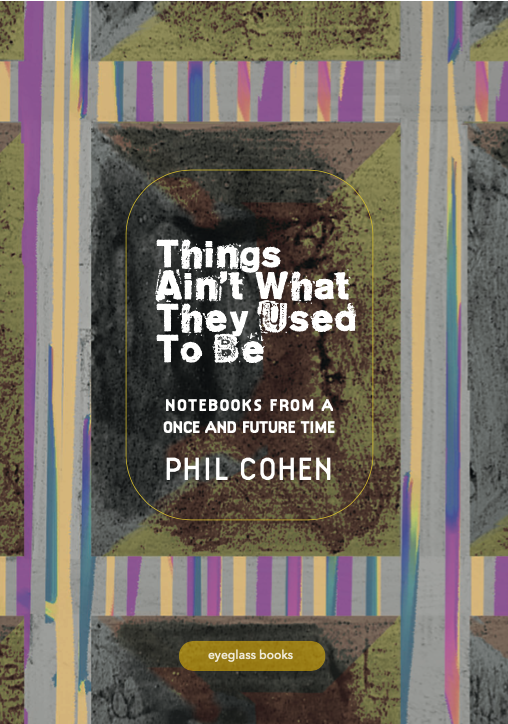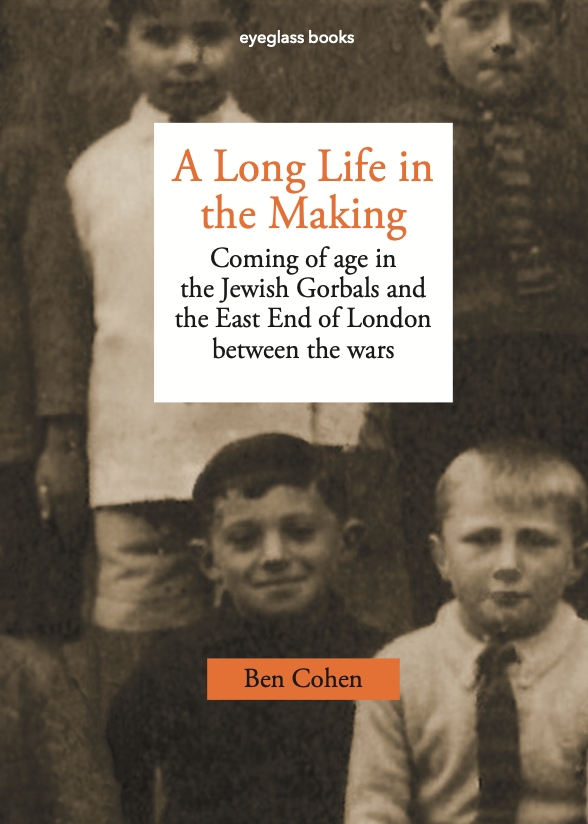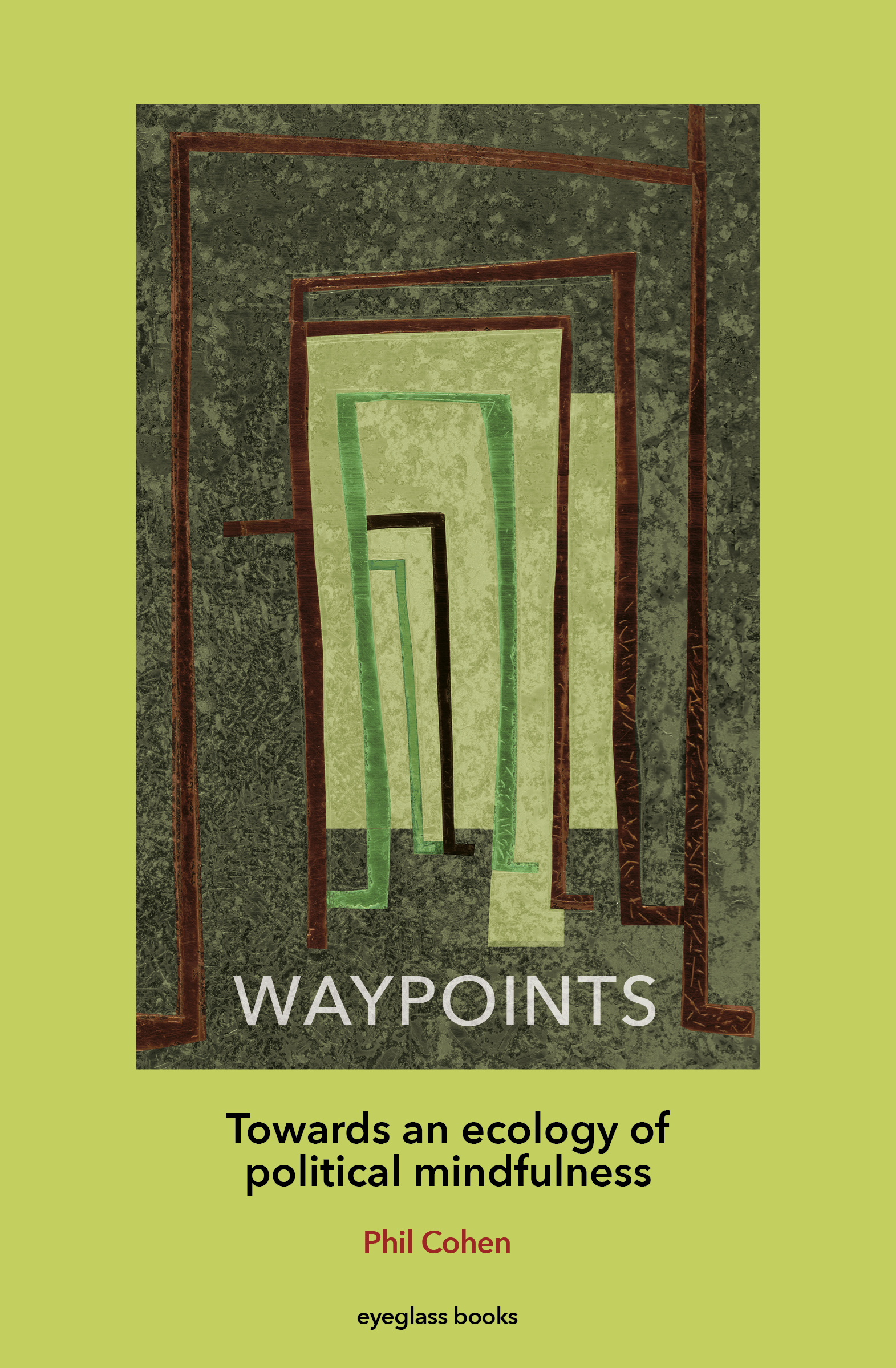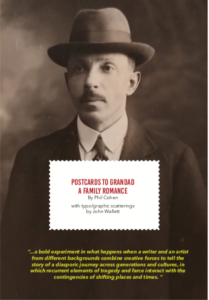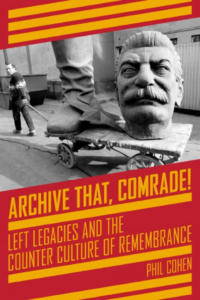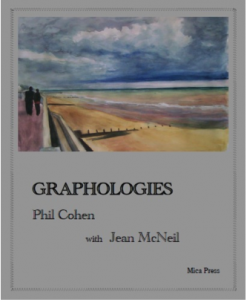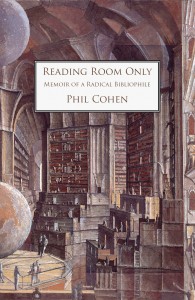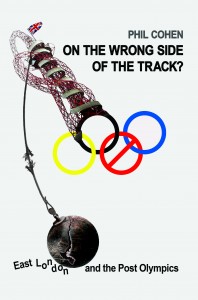Trump L’Oeil
Like most people on what we used to call the Left, I guess I have been struggling to come to terms with the result of the US Presidential election, not to mention the UK vote to leave the EU and the gains by the Far Right in Eastern Europe. It is fatally easy to join up the dots and see the emergence of authoritarian populism and national isolationism as an irresistible force sweeping across the Western world, demolishing what remains of the advances made by Social Democracy and the Labour movement following the defeat of Fascism in 1945. We never dreamt, in our worst nightmares, that anti-globalisation protest would take this form. Faced with this circumstance, the Liberal Left commentariat have done what they do best and engaged in a frenzied bout of breast beating and straw clutching, a difficult manoeuvre at the best of times, but which some, like Owen Jones or Gary Younge in the Guardian and David Runciman in the LRB have managed brilliantly. Say seven Mea Culpas and three Hail Gramsci’s before writing your next essay in ‘deconstructing common sense’ and you may yet live to become a footnote in some-one else’s history of these ‘New Times’.
[expand title=”Read More”]
But let’s suppose for a moment that the outcome of these elections and the shift in the tectonic plates of social ideology of which they are the symptomatic expression, cannot be entirely laid at the door of a disgruntled working class and petit bourgeoisie who feel left behind by globalisation, abandoned by the Labour Party and resentful at the patronising concern about their predicament shown by an intellectual elite ( who have clearly done well out of the shift to a knowledge, culture and service based economy, that has made so many manual workers redundant). Instead let us entertain the possibility that what attracts this electorate to Trump or UKIP is not the substance of their policies, let alone personalities, but the style of their address, the sheer transparency of their political motivation. For once what you see, with all its brashness and bigotry, is what you get; there is no bland phraseology or weasel words which conceal the vested interests driving the agendas of the mainstream parties. The tropes of Capital and Labour, those tired avatars which still govern routinised conflicts over the distribution of income, wealth and life chances, dissolve into a heady but seamless rhetoric of the People Against the Establishment, the Forces of Change against the Status Quo. And yet this in- your- face attitude is just that, a calculated pose, a mirage of transparency, a claim to ‘authenticity’ carefully simulated through media spin.
So what if Trump does’nt build his Maginot Line against the Mexican Wetbacks and US Corporations decline his invitation to repatriate their operations and set up business in areas of high unemployment in the Rust Belt ? What if Brexit delivers neither greater sovereignty, nor tighter immigration controls, but accelerates the decline in productivity and investment in British industry? Well then of course the conspiracy theorists are waiting in the wings ready to denounce the political class for once again thwarting the Will of the People.The system is rigged, innit? Heads they win, tails we lose.
We have to recognise that politics is no longer business as usual, is no longer about a rational choice between competing interests or elites, but draws on diffuse structures of collective sentiment, of hope and despair, anger and resentment, that are not amenable to the calculations and trade offs we have come to accept as the only form of reason that counts. In those circumstances it seems as if demagoguery has the upper hand against any more grounded process of democratic deliberation. The Political Unconscious and the return of its repressed rules OK. Trump with his combination of punitive finger wagging moralism, narcissistic posturing and adolescent sturm und drang perfectly encapsulates the ‘other scene’ of the American Dream. But authoritarian populism only gains ground because a vaccum has been created by the atrophy of more robust and embedded agencies of democratic deliberation whether in the labourhood or neighbourhood, as a con sequence of neo-liberal policies over the last decade.
Momentum was an attempt at renewal, and succeeded for a time in mobilising Generation Rent- students and budding young professionals whose expectations of a decent, secure job and housing have been dashed- but it ran foul of the sectarian Left whose motto might well be ‘in order to save the party ( from the reformists), we have to destroy it’. In many ways the MO of the Trotskyite groupuscules is a parody of the deviousness and instrumentalism of the mainstream parties, mirroring in a suitably extreme form the behind- the- scene manipulations which are a substitute for internal democracy even as they claim to speak in its name. The only defence against this cancer in Labour’s body politic is to develop organisational forms and practices in which this kind of sectarianism is an irrelevance. And by no coincidence these popular democratic forms and practices are precisely what is emerging within the gig economy as a defence against the precarious conditions of existence to which increasing numbers of people, working class and middle class, black and white, gay and straight, now find themselves subjected. In the process some traditional forms of action are being re-invented, as in the recent Uber strikes, alongside new ones, and that, as we face forward into a New Year with an exponential growth in uncertainty, offers a realistic ground for hope.
[/expand]
Two funerals and a strange kind of wedding
By a malign co-incidence I recently had to attend two funerals on the same day at Golders Green Crematorium. In the morning I went to say goodbye to Jagdish Gundara,an old friend and comrade –in- arms in the struggle to build a more open and democratic educational and cultural strategy to challenge popular racism, especially amongst young people growing up in working class communities. Over 200 hundred people crowded into the chapel to pay their respects and to hear tributes to his life and work, friends, colleagues and family. Perhaps the most moving eulogy was from a young nephew who related a number of very funny stories which his uncle had told him and which confirmed my belief that Jagdish would could have made it as a stand up comedian up there with Omid Djalili if he had wanted.
[expand title=”Read More”]
I met Jagdish in the early 1980’S shortly after I came to the Institute of Education to work on a research project about young people, and the transition from school. The project was based in the Department of Sociology. The department was not a very easy introduction to academic life, being a rather unhappy place, riven by personal and professional animosities whose origin it was impossible for a novice to understand. Meeting with Jagdish was like leaving a dysfunctional Jewish family in which you never knew who was going to be this week,s favourite son, and entering a warm and welcoming home from home in which a sense of intellectual community, of belonging to shared endeavour was paramount.
The 1980’s were a time of great change in education. The Thatcherite counter revolution had singled out progressive child centred education, critical pedagogy and the multicultural curriculum as major targets. The Institute, which had been a stronghold of critical educational theory and practice, found itself on the defensive. At the same time, there had emerged on the left, and partly as a response to the tightening of educational inequalities under Thatcher, a form of anti-racism which was extremely doctrinaire and moralistic and, in its educational application tended to make many young white working class people feel that their culture was being targeted unfairly. This approach, a Stalinist form of identity politics, succeeded for a time in closing down the spaces of dialogue and debate that were needed around issues of race both inside and outside the school. We are reaping the whirlwind today.
Against this background the Centre for Multi Cultural Education, under Jagdish’s leadership was a haven for work that was concerned to develop new ways of thinking about cultural and institutional racism and how to combat it, within a broad comparative framework informed by humanist values. What he came to define as inter-cultural education avoided falling back into easy liberal clichés about the need to combat prejudice, encourage tolerance for diversity while at the same time avoiding the kind of reductive analysis in which it was always ‘racism what dunnit’.
Meeting and talking with Jagdish inspired me to change the direction of my research. I tried to develop an alternative, ethnographically grounded, approach to working around issues of race with young people, based on using photography and art work in a form of peer to peer pedagogy.The work was attacked from all sides as opening up the pandoras box of popular racism. Jagdish, who was on the steering group for this project was a tower of strength, a source of wise counsel and a steadying hand at moments when I felt discouraged by the negative response and overwhelmed by the difficulties and pressures of the task,
Much later, when I was going through a period of extreme personal distress, amounting to a breakdown, he was again at my side, encouraging me not to give up the fight against the inner demons of despair. In the way he conducted his own life, and especially in how he battled the afflictions of his long illness, Jagdish ‘s courage was an inspiration to many of us.And this courage was nopt confined to the personal sphere. He was fearless in speaking truth to power, he despised time servers and careerists, especially those who affected to be on the side of the oppressed in order to further their professional ambitions; he was passionate about social and racial justice and resolute in his determination to see it achieved. He was a steadfast friend and colleague, he was an entertaining raconteur, he loved the arts, good wine and food. Indeed it was because he wanted these pleasure of life to be available to all and equitably shared, that he struggled so strenuously against all those forces in our society who would reserve them for the wealthy and the powerful, for those who go to the ‘right ‘ schools, have the ‘right’ kind of social, cultural or ethnic capital.
While he will always remain alive in the memory of the many students, colleagues and friends who knew him, worked with him, and whom he helped in numerous ways, it is important that we also keep his educational legacy alive, now especially, at a time when those who feel threatened and left behind by globalisation are turning to the local consolations offered by right wing populism, nationalism and xenophobia. Now more than ever, when pessimism of the intellect rules OK, often dressed up as vacuous radicalism, we need his optimism of the will, his determination to remain curious and explore new horizons of possibility even and especially in the face of set backs. Jagdish was very proud of a ceremonial sword he had been awarded by the Indian government in recognition of his services to education, and which hung on his office wall. He was indeed a doughty warrior, fierce in the pursuit of what he believed in, but he was also gentle, generous, and kind. Yiddish has a word for it. Jagdish was a real mensch.
In the afternoon I attended a very different kind funeral, that of my father. Dad died on November 16th at the age of 101, after a long period in which his incapacities, both mental and physical, grew slowly worse, though he bore the afflictions of very old age with fortitude and dignity and was able to remain in his own home until nearly the end. There were only 12 mourners at the funeral, most of his friends, and my mother, having pre-deceased him by many years..
My dad was adamant that he did not want a service to mark his passing, so, in accordance with his expressed wishes, we arranged something very minimal However we thought that some structure and context should be given to this sad occasion for those who attended.
In the last few months of his life I spent a lot of time talking with my dad about his life, as we worked through his memoir, which is going to be published shortly online by History Workshop Journal. One of the stories he told me, relates directly to the two pieces of music we chose, the Iona Boat Song and Sea Sorrow, both sung by the Glasgow Orpheus Choir. The choir meant a lot to him, as indeed did his boat, the Kyle of Lochalsh which, despite its name, e kept on the Thames where he and my mum spent many happy times and made new friends.
This is the story about the Glasgow Orpheus as my dad wrote it in his memoir. The narrative characteristically shifts from the first to the third person and back again:
‘ I was about 8 years old and in Miss Whitton’ s Class, a lovely fair haired gentle lady, with a soft voice and similar heart for whom the children would veritably lay down their lives. It was a music lesson on a tonic-so-fa instruction book. ” I have two tickets for an Orpheus Choir concert for a boy and a girl who will read a whole line of the music without a mistake “.Benzion is up and does. She waits for a girl. Benzion is in panic. He’s not going with a girl. ” George..I whisper to my pal,” please try”… I’m not sure. ” ” Don’t worry ” ‘
I whisper. ” I will whisper it if you can’t do it. You must try ” The clever little girl opposite is shy and stays silent. The choice is handed to the boys. ” George “, I nudge him. ” I am not going with a girl; try it.” ” I’m not sure “. The tension is unbearable. George gets up. Success. Comes the night, George and Benzion are scrubbed clean for this adventure and we meet our teacher outside St.Andrew’s Hall, are given a bag of sweets and in we go. We were overwhelmed; the choristers were in grey academic gowns, the singing was heavenly and to crown it all one of the choristers fainted.
65 years later, Ben is listening to a radio recording of the Glasgow Orpheus Choir, now defunct and is almost in tears.The concert was a seminal experience and began my passion for classical music so that for many years I attended the concerts at the same hall on Saturday mornings.’
Before we listened to the second track from the Glasgow Orpheus we shared two minutes of silent reflection about my father’s life and what he meant to us. In the Jewish cultural tradition, to which my father felt he belonged, although he was in no way religious and had no time for Zionism, in the Jewish tradition, there is a special space and time for this kind of reflection as part of the process of mourning; it goes by the name of Kaddish. In a very fine book about this practice, which goes into its religious roots as well as its contemporary philosophical and cultural resonance Leon Wieseltier gives a commentary on its existential context which I think provides a useful guide as to what was entailed as we each gathered our recollections of what my dad’s life and its passing meant. Here is a short passage from the book :
‘There are circumstances that must shatter you; and if you are not shattered, then you have not understood your circumstances. In such circumstances, it is a failure for your heart not to break. And it is pointless to put up a fight, for a fight will blind you to the opportunity that has been presented by your misfortune. Do you wish to persevere pridefully in the old life? Of course you do: the old life was a good life. But it is no longer available to you. It has been carried away, irreversibly. So there is only one thing to be done. Transformation must be met with transformation. Where there was the old life, let there be the new life. Do not persevere. Dignify the shock. Sink, so as to rise.’
Two very different lives and times: Jagdish a member of the Sikh community in London from the 1960’s onwards who became a leading spokesman for multicultural education, not only in Britain but around the world ; my dad grew up in the Jewish community of the Gorbals after the Ist world war and was active, even as a young boy, in the Independent Labour Party, before he went off to medical school, and a successful professional career as an ENT surgeon in London. Very different beginnings, but the one connecting threat was the way their lives had been shaped by issues of race and class, and turned them into life-long socialists. Jagdish had experienced at first hand the subtler forms of ‘Anglo-Saxon Attitude’ to be found amongst the educated English middle class. My dad experienced the cruder forms of popular anti-semitism, growing up in the slums of Glasgow where battles between Catholic and Jewish razor gangs were not uncommon. For my dad’s generation the Spanish Civil War was the touchstone of radical political sympathies, you were either for or against Fascism; in the cultural wars around race and class which developed in the 1980’s, the lines drawn by identity politics were less clear cut, and there was little love lost between anti-racists and multiculturalists, even though they were all supposedly on the same side.
Life histories are always incommensurable, the singularities of experience defy easy comparison let alone equivalence. We think we know our parents, friends, lovers or colleagues by virtue of the intimacies we share with them, but there is nothing like a funeral to make us realise as we listen to other’s tributes that we are only ever aware of one facet of their lives.Nevertheless my attempt to marry up these two particular lives, brought together in their ending so arbitrarily in the same time and place, was perhaps part of a wider quest for principle of political hope in difficult times. Certainly both legacies belong to an enduring narrative of struggle for a better life, which however compromised or deflected, survives.
That does not mean there is any easy reconciliation between the legacies of different generations, for despite some family resemblances, significant differences remain. The forced co-habitation of incompatible visions of the world in the name of ‘tradition’ whether of family, or nation is a worst case scenario. This theme is brilliantly explored in Tony Kushner’s new play The Intelligent Homosexual’s Guide to Socialism and Capitalism. Taking more than the idea for its title from George Bernard Shaw’s treatise, it deploys Shavian wit in deconstructing the myths of both labourism and identity politics as these play out in an oedipal family drama. The father, a second generation Italian immigrant, grew up in a political culture where radical ideas, whether of anarchism or communism were part of everyday life. His finest moment was the organisation of a strike of longshoremen which won them permanent contracts at decent wages. He is however haunted by the fact, which is disclosed l in the play’s denouement, that the strike settlement resulted in feather bedding for the older workers who led it, but redundancy for the younger workers. The father represents an ancient regime of labour militancy and cuts a somewhat pathetically patriarchal figure, his pontifications belied by his emotional vulnerability. He is planning to sell the family home, a Brooklyn Brownstone now worth a million bucks, so that his children will have a financial inheritance, even if they have rejected his political legacy. But this move is only the precursor to his decision to commit suicide because he feels that everything he has struggled for and made his life meaningful, has come to an end. Meanwhile his son and daughter, who are both gay, and heavily involved in sexual politics, have to deal with their own ambivalence about their father, as they struggle to help him find a reason to live in a world that has moved on. It sounds like the plot of a Tenessee Williams play, full of extravagant rhetorical gestures. But in Tony Kushner’s hands this dialogue between two, equally lost, generations is incandescent with rage and disappointed hope, which is,moreover, articulated in the form of simultaneous conversations, rather like a series of inter-linked opera duets. At first the ebb and flow of debate is rather confusing to follow until you realise that threaded through this elaborate counterpointl of angry voices is a single line of argument about what one generation owes to another, and how much young and old need each other to intercede on their behalf in facing up to the counter-finality of all their plans and dreams.
[/expand]
No more carrying coal to Newcastle ? On the value of keeping on, keeping on
I recently visited Newcastle in connection with a new project about the impact of de-industrialisation on the form and content of coming of age stories across three generations. The big contrast with East London, where the other leg of the study will take place, is that Tyneside has remained relatively ethnically homogeneous (and white), gentrification is much more limited and spatially concentrated in a few pockets whereas East London has always been an area of immigration, is both hyper-diverse and increasingly gentrified. In Newcastle I met Amber, a collective of film makers and photographers who have documented the decline of industry and the transformation of working class culture over the past thirty years; they are currently working with children and young people connecting them to the still living heritage of local working class communities, albeit one which is no longer so readily transmitted by their parents. Newcastle used to be a major port where coal from the Yorkshire pits was shipped out hence the famous phrase. But its meaning is lost on a generation for whom King Coal may once upon a time have been a merry old soul but has nothing to do with any conceivable future they would want to be part of. Their prides of place need to find new anchorages,they have to engage with new processes of wealth creation through their work, and in doing so they will indirectly, be following their grandparents and parents example.
[expand title=”Read More”]
In the work I have been doing since 1970 in East London, it has been much more difficult, if not impossible, to trace the pattern of continuity across the generations – one reason why I am embarking on this new project. More recently the work Livingmaps has been doing, in particular our Citizens Atlas of London, is also an attempt to create a space of representation which enables participants to make new connections between the past, present and future, both in terms of their own life trajectories, and that of the city itself.
This kind of work, pursued as part of a long term commitment to an area and its communities, is getting increasingly difficult to sustain. The knowledge economy is now very much part of the gig economy, social research is a hit and run affair, seeking quick results and quick fix policy solutions. The justification for short termism is that given the chaotic synchronicity of global capitalism long term planning is now impossible or irrelevant. Jobs for life and life time estates, secure careers and stable neighbourhoods are a thing of the past. But, it seems to me, that even and especially where this is the case, we need to stay around long enough to document the transformations. There is a value in keeping on keeping on.
[/expand]
